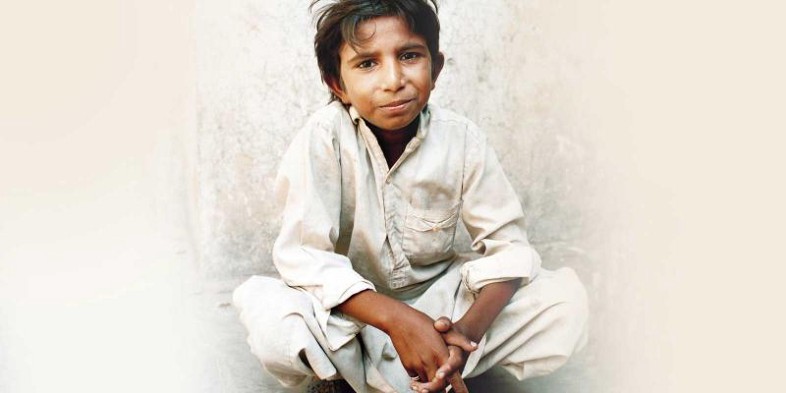 qbal Masih is a 12-year-old hero that not enough people talk about, presumably because not many people know about his accomplishments and sacrifices made for others. Iqbal was born in 1983 in a poor family in Lahore, Pakistan, where life was very difficult for the average citizen. Most people lived below the poverty line in a country affected by recent historical events.
qbal Masih is a 12-year-old hero that not enough people talk about, presumably because not many people know about his accomplishments and sacrifices made for others. Iqbal was born in 1983 in a poor family in Lahore, Pakistan, where life was very difficult for the average citizen. Most people lived below the poverty line in a country affected by recent historical events.
The families were so poor and desperate that they were pawning their own children to factories. The children would have to work in intensive labor until their parents were able to come back with the sum of money they were given when pawning the children as if they were objects and not souls.
Forced to work from the age of four
Iqbal went through the same treacherous life. At the age of four, his parents gave him to a person who owned a carpet factory in order to borrow 600 rupees (currency used in Pakistan)($12). Iqbal was forced to work until his parents returned with the money to take him back. This is the sort of modern slavery that still takes place in third-world countries and the worst thing is innocent children are caught in the middle.
It wasn’t just Iqbal, but thousands of children that were doomed to the same fate. Locked in chains in order to not escape and forced to work over 12 hours per day, seven days a week. The longer Iqbal’s parents took to come back with the money the bigger the interest was getting.

The boy worked for five years until his parents managed to scrape together the $12 owed to the factory owner, but with interest, the debt went up to $200 which in the 1980s Pakistan was a fortune. Iqbal was stuck in the factory just as the fate of many other children who worked all of their childhood in chains.
The living/working conditions in these factories weren’t pleasant at all. The enslaved children were barely getting enough food and water to stay nourished and if a child was sick or unable to work they would be brutally beaten. Iqbal also mentioned that if a child didn’t want to work they would be locked up in a small closet for a whole day.
Iqbal, as well as the other children, kept working even when the Government of Pakistan made child labor illegal in 1986. The corruption within Pakistan was at an all-time high and nobody could do anything for the fate of these children, not that many people seemed to care, especially the parents who would “sell” their children.
The Great Escape
At the age of 10, Iqbal became fed up with the life he was living, being beaten on a daily basis, and working to exhaustion. The boy started planning an escape, not just for himself but for every child within that factory. The boy knew that if the escape would fail his life would be in danger.
During a working day, Iqbal and a few other children managed to escape to the nearest police station but the cops were so corrupt that rather than helping the children, they took the children back to the factory have they received a prize from the owner of the factory.
For the escape, the children were punished severely by being beaten and starved. For these children, life was a living hell with no light at the end of the tunnel.
At the age of 12, Iqbal started to think of another way to escape that cruel life. This time he had done some research and instead of going to a police station, he went to a local NGO which was fighting against the enslavement of children and child labor named Bonded Labour Liberation Front ( BLLF). The NGO got all the paperwork necessary to free all the children working in his factory. Without Iqbal’s effort and sacrifice those children would have never been liberated.
A purpose in life
Since his liberation, he only had one wish and that was to free all the other children forced to labor within Pakistan. With the help of BLLF, the boy was able to get his story into the world stage, even getting the support of the United Nations. Iqbal started working with various NGOs around the world and even educating children that were older than him on child slavery and life within a third-world country such as Pakistan.

Iqbal became so popular that he was invited to hold talks in the United States and other European countries in 1994. His story and achievements lead him to win the Reebok prize for human rights ($50,000) in that same year. Iqbal wanted to tell his life story to the whole world so that no other child had to endure what he had gone through.
Murdered at the age of 12
The more attention Iqbal was getting the more factories in Pakistan were being closed in order to put a stop to child labor and enslavement. This made Iqbal a target for all the factory owners within Pakistan as most of them were using child labor. On the 16th of April, 1995, Iqbal returned to Pakistan to see his family. The same day he was shot in the head in Muridke, Pakistan.

His murderer was Mohammed Ashraf, the owner of a factory in Pakistan that lost most of its labor due to Iqbal’s campaign. During his campaign, Iqbal managed to save over 3,000 children that were under the same circumstances as he had been a year prior.
Here is a video from 1994 when Iqbal won the Reebok Human Rights Award.
You can see on his face how proud he was to fight against the life he had endured for so many years. During the start of the 21st century, Iqbal became the symbol of fighting against slavery and the constant fight for human rights within third-world countries, something that even to this day many people on this earth don’t have.

In 2006, author Andrew Crofts published a book entitled The Little Hero: One Boy’s Fight for Freedom — Iqbal Masih’s Story in which he gives a very detailed perspective of how miserable his life was as a slave.
The courage he showed during his childhood and life was inspiring for people all around the world and the reason why we should not be afraid to fight for what is right as well as for the freedom of others.
Since his death, the fight against child labor is still going, not only within Pakistan but all over the world. In 2014 Nobel Prize winner Kailash Satyarth dedicated his Nobel Prize to Iqbal for all that he had achieved in his short life.
According to research done by the United Nations, in 2020 there were still 152 million children that are forced to hard labor and to the dangers of factory work. We need to raise awareness of this major problem that has been going on for too many years.
Avid Writer with invaluable knowledge of Humanity!
Upcoming historian with over 30 million views online.
“You make your own life.”





